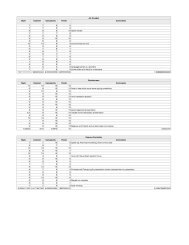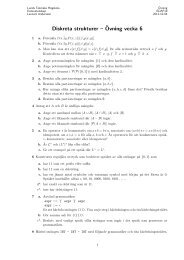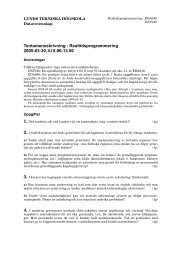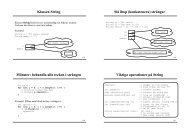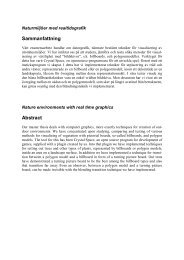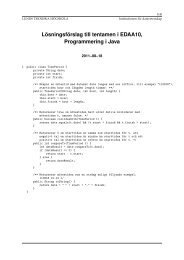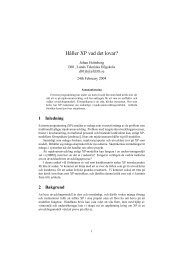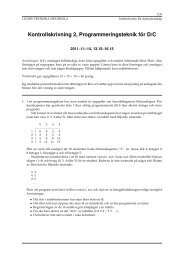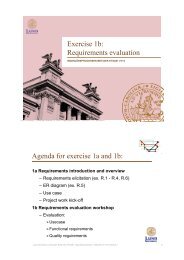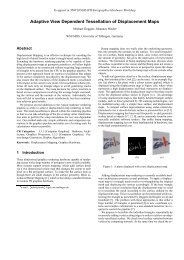JAVA-BASED REAL-TIME PROGRAMMING
JAVA-BASED REAL-TIME PROGRAMMING
JAVA-BASED REAL-TIME PROGRAMMING
Create successful ePaper yourself
Turn your PDF publications into a flip-book with our unique Google optimized e-Paper software.
RTEvent post(RTEvent e)<br />
final void doPost(RTEvent e)<br />
final RTEvent tryPost(RTEvent e)<br />
final RTEvent tryPost(RTEvent e, long timeout)<br />
3.4. Message-based communication – Mailboxes<br />
Fetching The corresponding methods for fetching messages look as follows,<br />
where the tryFetch methods return null if no event object was obtained.<br />
RTEvent fetch()<br />
final RTEvent doFetch()<br />
final RTEvent tryFetch()<br />
final RTEvent tryFetch(long timeout)<br />
Control and status The following non-blocking methods can be used to<br />
check if the buffer is empty or full.<br />
boolean isEmpty()<br />
boolean isFull()<br />
For a single producing or consuming thread these methods can be useful,<br />
but in the general case with outer threads involved the returned state<br />
may of course be invalid already when execution continues on the next<br />
line (due to preemption, etc.), so using the try-methods are usually<br />
preferred.<br />
Sometimes state or mode changes are to take place based on the state<br />
of the buffer, and the responsible thread is to be blocked until the buffer<br />
condition is fulfilled. The following await-methods are blocking. Examples<br />
of use include: await all event consumed before terminating the<br />
application, await producer started before starting operator or networking<br />
interface, await buffer filled with event trace, and await consumer<br />
started, respectively:<br />
void awaitEmpty()<br />
void awaitNotEmpty()<br />
void awaitFull()<br />
void awaitNotFull()<br />
The fetchAll is to get all buffered events leaving the buffer empty. The<br />
event that was the next to be fetched is returned as the first element<br />
(index 0), followed by the other events in FIFO order with the most<br />
recently posted event as the last element. An empty array (not null) is<br />
returned if the buffer was empty. Calling flush also results in an empty<br />
buffer.<br />
RTEvent[] fetchAll()<br />
void flush()<br />
There are set and get methods for the maximum size of the buffer.<br />
Note that if the maximum size of the buffer is decreased to less than<br />
the current size (obtained via currentSize), the caller of setMaxSize is<br />
blocked until the size actually has decreased to the new maximum size<br />
(due to other threads fetching messages).<br />
93





